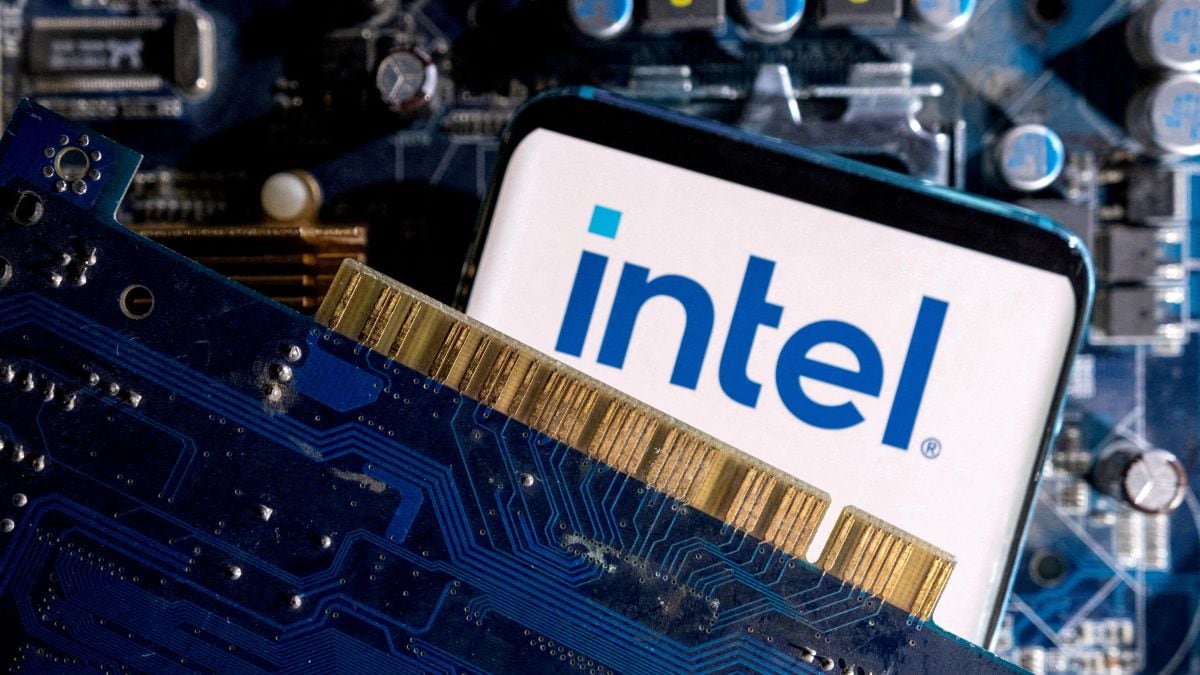Intel Corp. Chief Financial Officer Dave Zinsner said that a formal separation of the company's factory and product-development divisions is an open question that will be decided by the chipmaker's next leader.
Zinsner, who is serving as interim co-chief executive officer following this month's ouster of Pat Gelsinger, made the remarks Thursday at the Barclays technology conference in San Francisco alongside co-CEO Michelle Johnston Holthaus.
Intel's struggles to keep pace with rivals — along with its deteriorating financial condition — have spurred speculation that the next CEO will make dramatic changes. That's included talk of a split of the company's manufacturing and product-design operations.
“That's an open question for another day,” Zinsner said in response to an analyst question.
The two units are already separated operationally, with different oversight and accounts, he said. Gelsinger, who served as CEO from 2021 until last week, had maintained that the two main parts of the company were better kept together.
Johnston Holthaus said that access to leading production technology is an advantage for Intel's products.
“So pragmatically, do I think it makes sense that they're completely separated and there's no ties?” she said. “I don't think so, but someone will decide that.”
The shares gained 3.3 percent to $20.78 (roughly Rs. 1,762) in New York. They had plunged 60 percent through Wednesday's close.
The executives broke with their predecessor's more bullish messaging and emphasized that it will take time to fix Intel's competitiveness and finances. They pointed to progress in personal computer chips but also struggles ahead in data center products. Intel's outsourced manufacturing effort, which involves making chips for outside clients, is another challenge.
Management will focus less on talking about “early indications of success” and more on concrete achievements, Zinsner said. They will also dispense with giving “meaningless” long-term total deal value predictions for the company's outsourced production efforts, he added.
Johnston Holthaus said that Intel needs to invest more in its products and is willing to deal with near-term down years to make sure it has offerings that will be more competitive in the long run.
Johnston Holthaus, known internally as “MJ,” also said that rival Advanced Micro Devices Inc. has done a better job of providing their shared customers with data center products they want. In 2025, the executive will focus on trying to halt the market-share loss that Intel has suffered, she said. As part of last week's shake-up, Johnston Holthaus also took on the role of product CEO, putting her at the heart of this effort.
In artificial intelligence accelerator chips, where Nvidia Corp. has taken a dominant role, Intel has struggled as well. The company's Gaudi chip is difficult to use, Johnston Holthaus acknowledged. Intel is now focusing on more generic graphics-chip offerings that won't be great at first but will be rapidly updated to make them competitive, she said.
© 2024 Bloomberg LP


